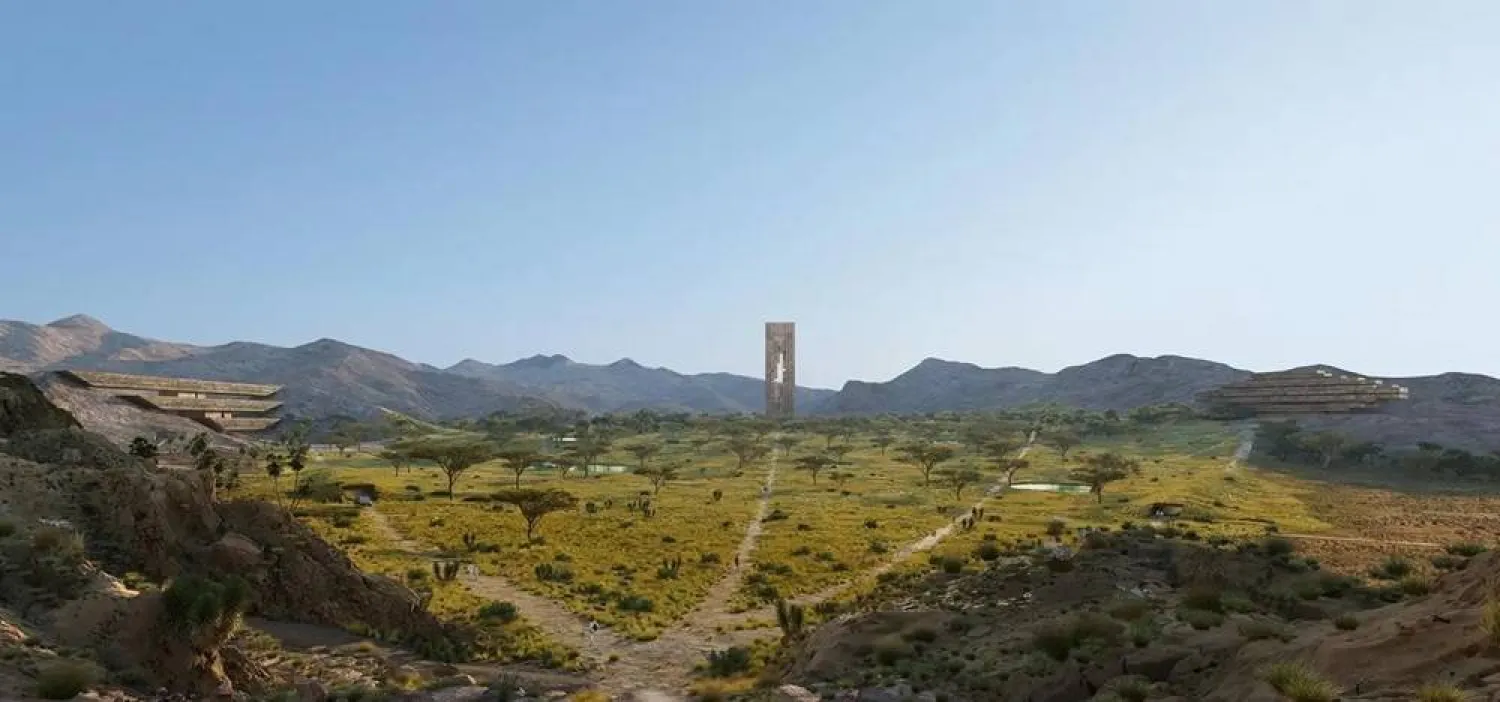NEOM's Board of Directors announced on Wednesday the launch of "Zardun", an exclusive resort and natural reserve that will contribute to the restoration and revitalization of the surrounding environment, supporting NEOM's efforts to develop luxury ecotourism in Saudi Arabia.
Zardun is NEOM's newest coastal destination, designed to blend modern luxury with natural beauty and complement a number of other coastal destinations being developed in other projects across NEOM region.
Overlooking the turquoise waters of the Gulf of Aqaba, Zardun Nature Resort will feature four distinctive, ultra-luxurious buildings that will blend harmoniously with the surrounding landscape. Zardun is a one-of-a-kind destination that blends luxury with nature and aims to offer visitors the ultimate ecotourism experience.
The new mountain-to-beach destination will span four square kilometers and has been carefully designed as a reserve that preserves the diversity of its rich habitat of local flora and fauna. Visitors will be able to experience its beauty through the state-of-the-art Experience Center, which includes an observation deck with a 360-degree panoramic view that allows visitors to observe the details of wildlife and enjoy the natural landscape of the surrounding environment.
Zardun will feature three luxury boutique hotels with 100 rooms and suites, designed with a futuristic vision that promotes sustainability to preserve this environment that is being developed for the first time. Each hotel will take a different approach to delivering distinctive experiences for guests, with stunning views of the valley floor and beachfront.
Zardun will offer hiking, mountain biking, rock climbing, and other sports and recreational activities, including stargazing, meditation, and yoga. In addition, visitors will be encouraged to join educational and field programs on nature protection, conservation, and resettlement.
Zardun's sustainability strategy includes pioneering conservation methods, including the development of a series of oases to support diverse natural habitats. The area's existing water sources will help revitalize the natural habitat of local flora and fauna. Along its coastline, Zardun will also support a vibrant marine ecosystem, including the preservation of coral reefs and other marine species in the Gulf of Aqaba, exemplifying NEOM's ongoing commitment to nature conservation.
Zardun joins the latest projects recently announced by NEOM, including Leyja, Epicon, Siranna, Utamo, Norlana and Aquellum, which are sustainable tourism destinations on the Gulf of Aqaba, all of which exemplify NEOM's commitment to sustainable progress.









